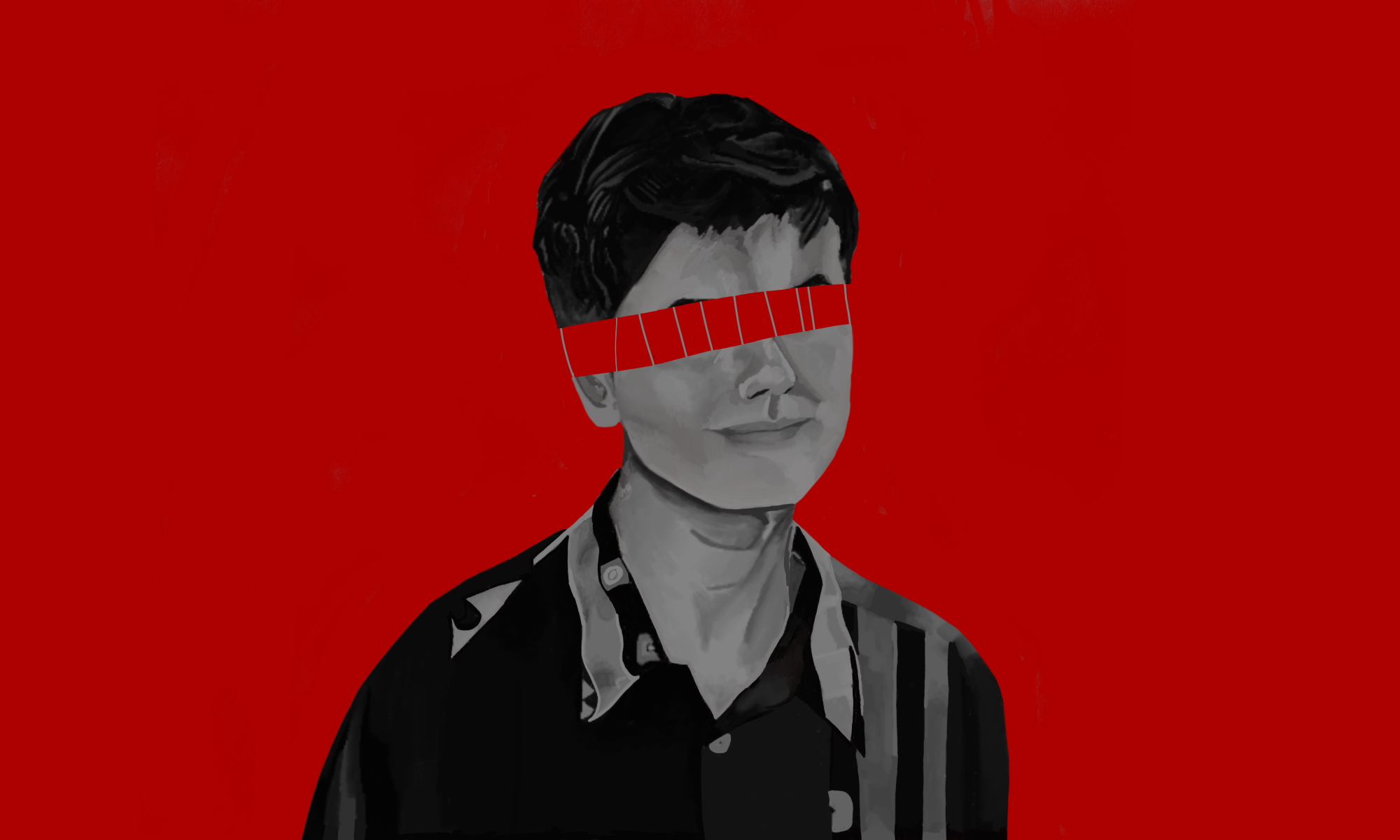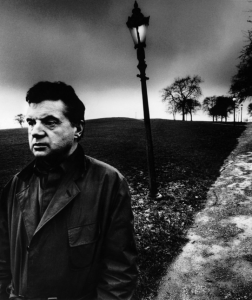
Shibari Teddy
by Eliott Rose | October 25, 2021
Trigger warning: themes of sexual assault
Last summer, I had an unhealthy amount of sex. I would wake up, meet someone, sleep, and repeat for weeks. This wasn’t new, but the intensity was. It felt like an obsession – more than that, it was a full-time job. The sex itself was new: in experimenting with the kinky, the extreme, I quickly went from someone who casually enjoyed submission to a masochistic and all that that label entailed. Rope was my speciality, the feeling of it often sending me into trances through the patterns it made across my stomach. During one session, lost in the moment and stroking the rope pulled tight against my wrists, an unusual feeling of déjà vu washed over me. Each time I touched it, something tugged at a deep, aching memory.
I have few memories of my childhood. Often it blurs into an unintelligible darkness. My brain was a carving, its memories excised and discarded. The parts that remained were beautiful, but ephemeral and fleeting; they didn’t form a pockets that were impossible to navigate. This meant that I was defined more by absence than concrete memory in ways that made reflection uneasy. These absences were at most a scent, a feeling, a texture, a corporeal echo that defied understanding. I viewed myself as being trapped within the paradigms of trauma, attempting to negotiate a selfhood based primarily on a childhood that I couldn’t remember. I had no history, just a body, and in lieu of memory I viewed these gaps as all-encompassing Events. The Event was an abstract and simple construction in which I knew Something occurred, but that was all. Something happened which affected my mind and body, but it was just out of sight. Rendering the unremembered exceptional in nature might seem ridiculous, but what choice did I have? Either they were Events, or they were nothing and I had no history to claim. Their unknowability held me hostage, tethering me to a past that I could not recall. Despite their simplicity, they offered comfort. I was a paradoxical person bound in webs of trauma, defined by an absence of history – an unstable definition that was bound to collapse. This memory being pulled from me – this corporeal, real experience – displaced that construction:
Seven years old. I’m sitting on my bed holding a teddy bear in one hand and a hair band in the other. Concentrating hard, I take the bear’s paws and tie them together with my makeshift handcuffs. I look at the bear, then at the indents on my own wrists from where I previously tied my own together. I feel guilty because I can’t work out why I enjoy this. I hear my mum coming upstairs and quickly throw the bear under my covers.
This is all that emerged: a childhood game, confusion, and guilt. I forged a connection to this new memory, to an Event in which Something happened. A sexual assault. In some sick, torturous twist, I could only remember a confused sexual awakening and not the Event that caused it. Lacking any alternative explanation, all I could conclude was that this forgotten trauma created my submissiveness. This unremembered Event overwhelmed me: it was now the reason I lay here, entangled in rope, mimicking the actions I carried out over a decade ago. There was a straight line between my childhood trauma and my current state, one that I could only observe and not understand. I was distressed, mumbling the safe word over and over, yet unable to explain my panic. I experienced a loss of self – what I thought of as sexual freedom was in fact a body in shock.
When I went home, the feeling didn’t leave along with me. It stayed for months, at times so overwhelming that I felt nauseated. This resurfaced memory decentred my sense of self, desires, and sexuality, so much so that I could not decouple it from my current desires. How could I enjoy non-consensual roleplay with this new revelation? It seemed impossible to reconcile my desire to submit within this framework of trauma, so I shut down. Any sexual urge, any passing thought, any dating app conversation – it became too overwhelming to cope with. My desires disgusted me. I ghosted everyoneI read back old conversations and retched. How could I still enjoy sex? My sexuality was so far removed from ‘normal’ that it was beyond saving. My body was the site of another’s desires, twisted so beyond recognition that passions only ignited when it paralleled abuse. I was not myself.
I was trapped in this state until I stumbled across Sigmund Freud on one of my university reading lists. His theories, which taught me how the patient could subconsciously repeat trauma and consolidate it within their personality, and that the body could have long-term effects, were an explosive revelation. Academic study gave me explanations, but more importantly it gave me distance. I could now ‘other’ my history and view it with empiricism: this terminology created new paradigms with which to dissect myself without needing to address my potent instability. With detached confidence, I explained my actions and their causes. The links between trauma and my fascination with rope now had theoretical backing: the recurrence of restraint, from childhood to now, were traumatic repetitions that attempted to reclaim autonomy to make sense of the unknowable. I called my adult self a traumatised hypersexual. The addictive mentality I had towards sex was now under scrutiny as I didn’t realise that it was abnormal to fantasise about being abused, or even to constantly think about submission. This was a life-changing revelation: I became a victim of trauma instead of merely a bad person. Replacing the paradigm of morality with science was comforting. It felt permanent.
But critically, the self, memory, and identity cannot be explained through a medical paradigm. I had not resolved anything in replacing one model of understanding for another because I still viewed my desires as a defect, which existed only because something had gone terribly wrong. Instead of finding pleasure, I found a diagnosis. Viewing this, the most personal and innate core of myself, through paradigms of trauma and abuse did not absolve me of guilt; instead, it intensified it. My guilt was now self-pathologising. I put myself in a specimen jar for analysis, focusing on every tiny detail for clues that could reveal something: Are my daddy issues a direct result of the Event? Do I like impact play because of some Event not yet realised? Why do I need to feel helpless? Everything had to be analysed, and this analysis carried the weight of academic rigour that I couldn’t ignore. It did nothing to fix my current relationship with sex – I still ghosted people, still felt guilty and sick at my desires. With my mind constantly preoccupied and so removed from the moment, sex became impossible.
I vividly remember confiding in one man about this and watching the colour drain from his face. He felt guilty, so much so that I ended up comforting him. He was visibly upset, needing constant reassurance that he had not hurt me, that he was not my abuser and that he was in the clear. In having sex with me, he felt as though he had contributed to my anguish – being honest with the men I slept with thus rendered them complicit in my guilt. His palpable hurt convinced me to stay silent, to keep my burning analysis locked inside. My trauma became a pathogen capable of causing guilt in whoever knew of it. My silence in the bedroom was now mandatory, raising questions from the men I saw. After witnessing several moments of unexplainable crying, I was asked to either speak about my issues or leave. I chose to leave. Negotiating trauma is often contradictory, nonsensical, and hyperbolic: these actions rendered me doubly isolated, and the medical framework I forced myself into did everything but liberate me.
It’s now close to one year since that memory resurfaced. It is not enough to continue with simply fixing my current relationship with desire. Recovery goes beyond that, and it cuts into the heart of how I define myself as a person moulded by trauma. In viewing myself as a paradox, as someone defined by their proximity to forgotten traumatic memory, I am constantly looking backwards. It will never be enough to perpetually re-examine old wounds, to agonise over my lack of memory, and to reinforce potential links between the past and present. My body has memories that my brain cannot process: they could resurface today, tomorrow, next year, or never, and I would welcome them if they did. To have memory and be anchored into a tangible past is all I have ever wanted – but to pursue this unstable potential, to live in constant agony, is to never live for myself.
I’m realising now that academic analysis will not resolve me and that I no longer need to perceive myself as something that even needs to be resolved. My childhood self would be devastated to learn that the grown-up still agonises over the same issues, constantly second guessing my desires, thoughts, and feelings to this academically-driven extent means forever treading water in the belief that I am something broken. As I write this, I am taking the first steps in redefining myself out of these terms, away from my dependence on Events. Those memorialised, exceptional moments should not have such control over my life. I am far more than forgotten memories and uneasy moments: I am an individual with autonomy. This could take months, years, decades, forever, but I know that one day I will see myself as a human worthy of love instead of trauma personified. I know that with time I will allow myself pleasure for pleasure’s sake. However figured, my body and desires are my own – instead of an echo, my body has its own form. Seeking to remove myself from the paradigm of trauma is a process and redefining myself as complete is the most radical action I can take, the first step towards knowing how I can achieve this.▇
Words and artwork by Eliott Rose.




